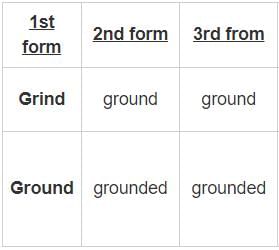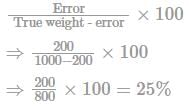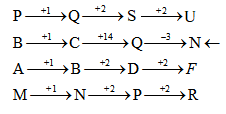Air Force Group Y Mock Test - 3 - Airforce X Y / Indian Navy SSR MCQ
30 Questions MCQ Test - Air Force Group Y Mock Test - 3
Direction: In the question below a sentence have been given in Direct/Indirect speech. From the given alternatives, choose the one which best expresses the given sentence in Indirect/Direct speech.
Q. Raju says, “I am glad to be here this morning"
Find out the word which is opposite in meaning to ‘Deserving Blame’.
Direction: In the question, you need to replace the underline part of the sentence with the most suitable idiom/expression given as an option.
Q. A mother is always engaged in performing her duties.
Direction: Out of the four alternatives, choose the one which can be substituted for the given words/sentences.
Q. One who eats everything.
Direction: Read the following passage and answer the question that follows.
Unfortunately, the reality hit me the next morning. I slept past the chirping of birds but was woken up by loud voices crossing my window every now and then. When I went to the kitchen to make myself some tea, a couple of tourists were peeping in through the glass door. Day trippers! The old-world charm of this village, with only 305 residents, was drowned by the callousness of visitors who only seemed to care about their photos and getting drunk, almost running over the locals in their rental cars, never realizing that they were intruding into someone’s sleepy neighborhood and life. My hosts assured me that the number of day trippers now was not nearly as bad as in the peak summer season, and joked about how the village residents, their homes and their kitchens must be curious, unfamiliar sights for tourists. If you’re on the same page, you’re probably thinking that an easy solution is that travel bloggers like me should never write about their “offbeat” finds. But as my social media followers often remind me, isn’t it part of my job to disclose the exact location of my stories and photos, so others can choose to experience my finds over ‘tourist traps’? I’ve dwelt on this dilemma for a long time. But walking on those cobblestoned streets in Istria (mostly at sunrise and late at night), it occurred to me that no, perhaps that isn’t the role a travel blogger is supposed to play. The way I see it now, my work as a travel blogger should inspire my readers to think of travel differently – to reconsider their travel choices, to seek local encounters, to carve out their own journey. It’s the reason I never have, and never will give you a three-day itinerary to “do” a destination. That’s not how I aspire for my readers to experience somewhere I’ve been and loved.
Q. What is the dilemma that the author has dwelt on for a long time?
Direction: Read the following passage and answer the question that follows.
Unfortunately, the reality hit me the next morning. I slept past the chirping of birds but was woken up by loud voices crossing my window every now and then. When I went to the kitchen to make myself some tea, a couple of tourists were peeping in through the glass door. Day trippers! The old-world charm of this village, with only 305 residents, was drowned by the callousness of visitors who only seemed to care about their photos and getting drunk, almost running over the locals in their rental cars, never realizing that they were intruding into someone’s sleepy neighborhood and life. My hosts assured me that the number of day trippers now was not nearly as bad as in the peak summer season, and joked about how the village residents, their homes and their kitchens must be curious, unfamiliar sights for tourists. If you’re on the same page, you’re probably thinking that an easy solution is that travel bloggers like me should never write about their “offbeat” finds. But as my social media followers often remind me, isn’t it part of my job to disclose the exact location of my stories and photos, so others can choose to experience my finds over ‘tourist traps’? I’ve dwelt on this dilemma for a long time. But walking on those cobblestoned streets in Istria (mostly at sunrise and late at night), it occurred to me that no, perhaps that isn’t the role a travel blogger is supposed to play. The way I see it now, my work as a travel blogger should inspire my readers to think of travel differently – to reconsider their travel choices, to seek local encounters, to carve out their own journey. It’s the reason I never have, and never will give you a three-day itinerary to “do” a destination. That’s not how I aspire for my readers to experience somewhere I’ve been and loved.
Q. Which of the following is not an example of callousness of the day-trippers?
Direction: Choose the most appropriate answer to fill up the blank.
Q. If you hear loud music, it will ________ your hearing.
Direction: Out of the four alternatives, choose the one which can be substituted for the given words.
Q. Preventing the light from travelling through.
Direction: Choose the most appropriate answer to fill up the blank.
Q. If a racer doesn't hold the _________ accurately, he can fall.
Direction: Select the most appropriate antonym of the given word.
Q. Quibbling
In the following question, out of the four alternatives, select the alternative which best expresses the meaning of the idiom/phrase-
Q. Harp on the same string.
Direction: Choose the correct alternative which can be substituted for the given sentence.
Q. One who eats all kinds of food
Spot the part of the sentence that has an error in it. Choose option D if the sentence appears to be correct.
IAF has ground the entire (A) MiG-21M fleet because of a technical flaw (B) which resulted in a series of crashes.(C) No error (D)
Select the correct passive form of the given sentence.
We changed the age group in the second survey from 18 years to 10 years.
Direction: Fill in the blank with the appropriate answer.
Q. Napoleon died in 1821 on a _________ island where Britain sent him ___________ from Elba.
Directions: Read the following passage and answer the question that follows:
One well-known description of parenting styles is based on the research of Diane Baumrind. Her early work focused on a careful longitudinal study of 100 (mostly European American, middle-class) preschool children. Through observation of children and parents and interviews with parents. Baumrind and the other researchers who built on her findings identified four parenting styles based on the parents' high or low levels of warmth and control.
Authoritative parents (high warmth, high control) set clear limits, enforce rules, and expect mature behavior. But they are warm with their children. They listen to concerns, give reasons for rules and allow more democratic decision-making. There is less strict punishment and more guidance Parents help children think through the consequences of their actions. Authoritarian parents (low warmth, high control) seem cold and controlling in their interactions with their children. The children are expected to be mature and to do what the parent says, "Because I said so" There is not much talk about emotions. Punishments are strict, but not abusive. The parents love their children, but they are not openly affectionate.
Permissive parents (high warmth, low control) are warm and nurturing, but they have few rules or consequences for their children and expect little in the way of mature behavior because They are just kids". Rejecting/Neglecting/uninvolved parents (low warmth, low control) don't seem to care at all and can't be bothered with controlling, communicating or teaching their children. Authoritarian, authoritative and permissive parents love their children and are trying to do their best; they simply have different ideas about the best ways to parent.
Q. Given below are two statements:
Statement I: Baumrind's study mostly focused on American middle class school children.
Statement II: Authoritative parents allow greater democratic decision making.
In the light of the above statements, choose the correct answer from the options given below.
Directions: Read the following passage and answer the question that follows:
One well-known description of parenting styles is based on the research of Diane Baumrind. Her early work focused on a careful longitudinal study of 100 (mostly European American, middle-class) preschool children. Through observation of children and parents and interviews with parents. Baumrind and the other researchers who built on her findings identified four parenting styles based on the parents' high or low levels of warmth and control.
Authoritative parents (high warmth, high control) set clear limits, enforce rules, and expect mature behavior. But they are warm with their children. They listen to concerns, give reasons for rules and allow more democratic decision-making. There is less strict punishment and more guidance Parents help children think through the consequences of their actions. Authoritarian parents (low warmth, high control) seem cold and controlling in their interactions with their children. The children are expected to be mature and to do what the parent says, "Because I said so" There is not much talk about emotions. Punishments are strict, but not abusive. The parents love their children, but they are not openly affectionate.
Permissive parents (high warmth, low control) are warm and nurturing, but they have few rules or consequences for their children and expect little in the way of mature behavior because They are just kids". Rejecting/Neglecting/uninvolved parents (low warmth, low control) don't seem to care at all and can't be bothered with controlling, communicating or teaching their children. Authoritarian, authoritative and permissive parents love their children and are trying to do their best; they simply have different ideas about the best ways to parent.
Q. Baumrind's research study focused on:
Directions: Read the following passage and answer the question that follows:
One well-known description of parenting styles is based on the research of Diane Baumrind. Her early work focused on a careful longitudinal study of 100 (mostly European American, middle-class) preschool children. Through observation of children and parents and interviews with parents. Baumrind and the other researchers who built on her findings identified four parenting styles based on the parents' high or low levels of warmth and control.
Authoritative parents (high warmth, high control) set clear limits, enforce rules, and expect mature behavior. But they are warm with their children. They listen to concerns, give reasons for rules and allow more democratic decision-making. There is less strict punishment and more guidance Parents help children think through the consequences of their actions. Authoritarian parents (low warmth, high control) seem cold and controlling in their interactions with their children. The children are expected to be mature and to do what the parent says, "Because I said so" There is not much talk about emotions. Punishments are strict, but not abusive. The parents love their children, but they are not openly affectionate.
Permissive parents (high warmth, low control) are warm and nurturing, but they have few rules or consequences for their children and expect little in the way of mature behavior because They are just kids". Rejecting/Neglecting/uninvolved parents (low warmth, low control) don't seem to care at all and can't be bothered with controlling, communicating or teaching their children. Authoritarian, authoritative and permissive parents love their children and are trying to do their best; they simply have different ideas about the best ways to parent.
Q. Uninvolved parents:
A. do not show warmth towards their children
B. are non-communicative with their children
C. do not care for their children
D. are affectionate towards their children
E. do not bother about controlling their children
Choose the correct answer from the options given below:
A dishonest shopkeeper sells sugar at Rs. 30/kg which he has bought at Rs. 25/kg and he is giving 800 gm instead of 1000 gm. Find his actual profit percentage?
Direction: In question, find the odd number pair from the given alternatives.
Direction: Which of the following diagrams indicates the best relation between Grandparents, Grandmother and Grandfather?

Who among the following invented the Electron microscope?
The current birth rate per thousand is 32, whereas corresponding death rate is 11 per thousand. The growth rate in terms of population increase in percent is given by:
Find the odd number/letters/word from the given alternatives.
Which city hosted the General Assembly of the International Criminal Police Organisation (INTERPOL) in October 2022?
What is the nature of the image that is formed on the retina of human eye?


















